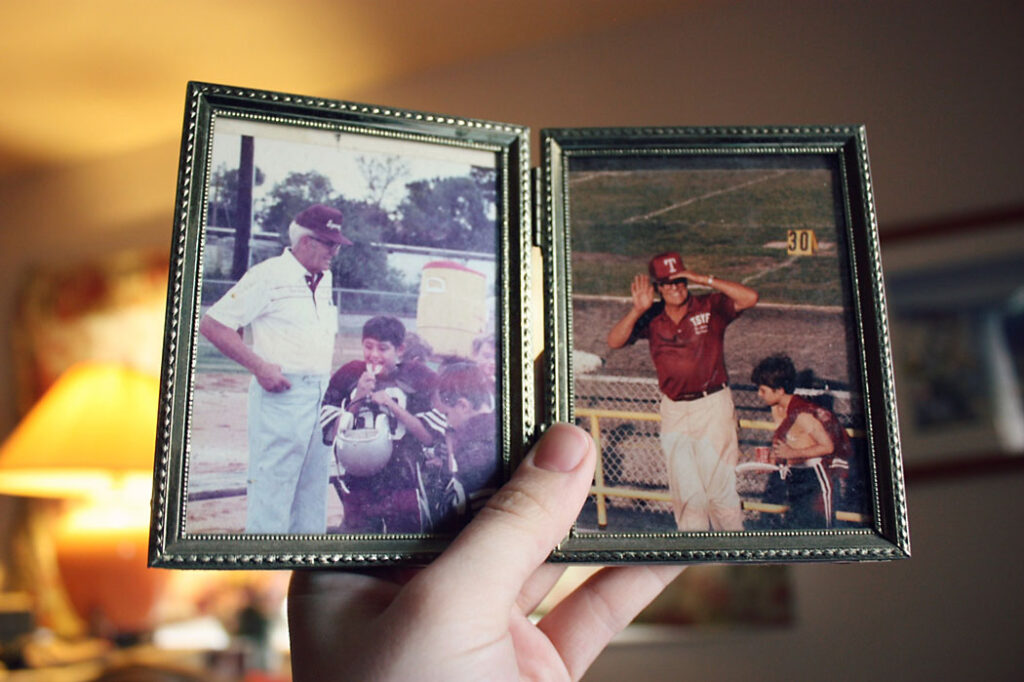
One day when my husband came to meet me after school, he entered my classroom and noted tears trickling down my cheeks.
“Oh my God, somebody died?” he said, rushing toward my desk.
“No, it’s just a student paper,” I offered, still reading.
“Well, how bad can it be?”
Bad? It was stellar! After co-creating and directing the Family History Project in a large urban school, I found Maria’s family legacy paper on my desk, the first to arrive and three days before the due date. “I misjudged my elders,” she had written.
Through interviews and artifacts, Maria discovered that her grandfather had been an engineer in Mexico, but he was unable to pass engineering exams in the U.S. and opened a fix-it shop instead.
My pride as a teacher swelled as I read, “Before doing this project, I hardly ever visited Grandpa’s shop, just a few streets over. Then, he shows me his 8th grade report card, and, wow, he got straight As, just like I am trying to do,” she wrote. “Now I walk over, and he helps me with math and science, then I help him in English. Before, I guess I thought he was just old, and didn’t know much.” Maria’s insights not only scored a home run on the Family History Project, but her legacy story also became a baton of wisdom worth passing on.

Often a legacy denotes leaving loved ones an inheritance of monetary value—a business, a nest egg, or even a life insurance policy. Legacy writing is another sort of gift. By writing about our life experiences, values, and viewpoints, we offer firsthand information for future generations.
During the digital age’s first global pandemic, stay-at-home advisories provide the perfect fodder for fueling some great memoirs. How about launching your own Family History Project? Any family member can start it, and others can join in. It’s basically free, and your efforts may even become a priceless family treasure.
Together, parents and children of any grade can research the heritage of their family name. Create a tree as far back as your resources allow. If you feel zealous, try Ancestry.com, which offers two-week free trials. Draw a world map and pinpoint locations and countries family members may have emigrated from, traveled to, or lived in. The body of the work will stem from live interviews with family members. If a family member has passed, still-living friends can be helpful in creating a historical character sketch. Interview questions may range from hobbies and home life to education, jobs, or political activism. Get on the phone, FaceTime, or Skype with family members.
Write your stories down, create a blog, dictate your actions and reactions onto Voice Recorder, or research voice-to-print apps if you prefer auto typist. Designrr’s eBook Creator is a great digital tool for turning blogs into books, and Shutterfly currently offers good deals for their interactive online platform, which allows you to create gorgeous hardbound photobooks in your preferred language. My daughter sent one to her German grandma auf Deutsch.
Sharing family stories and writing them down can have profound influences that ripple into family life in deeply affecting ways. When my daughter was five years old, I remember her sitting on Grandpa’s knee, asking him why he became a doctor. “I had to,” he said. “One day I was kindling the woodstove, and it backfired on me and I caught fire. I had to roll around in the snow to put the flames out. They were going to cut off my right arm,” Grandpa said, blinking back a tear at age 70. “I was only 15, and I promised God that if he saved it, I would become a doctor.” After six months in the hospital, enduring skin grafts without antibiotics, he limped out on crutches, his paralyzed arm dangling. “Sorry, son, nothing more we can do,” were his doctor’s parting words. But Grandpa was thinking, “Where there’s a will, there’s a way!”
Twelve years after listening to Grandpa’s survival story, my daughter wove his legacy story into her UCLA application essay, ultimately landing her entrance into their pre-med program. And “Where there’s a will, there’s a way” has become the family motto.
Changes abound today. If life tosses you a lemon of an experience during the COVID-19 outbreak, create some time for introspection and shed some light on your inner growth. As William Faulkner wrote, “The poet’s voice need not merely be the record of man, it can be one of the props, the pillars to help him endure and prevail.”
Mary Anne Kurzen writes about her legacy as a mother, writer, and teacher.
